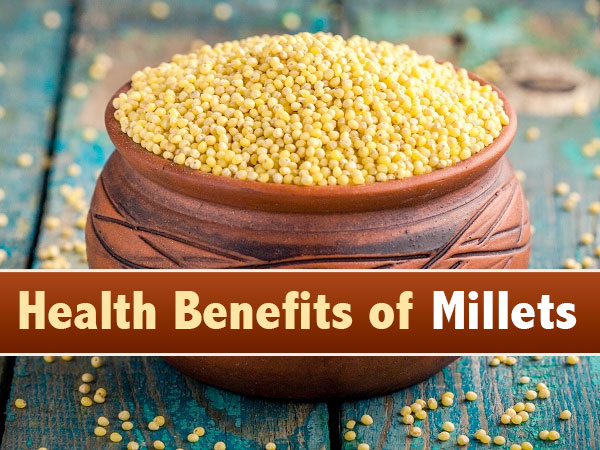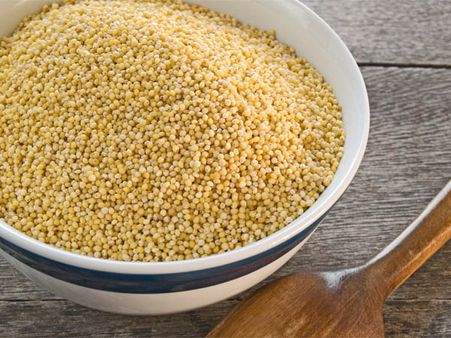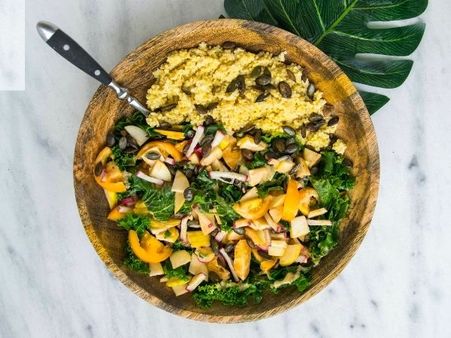Just In
- 24 min ago

- 3 hrs ago

- 7 hrs ago

- 11 hrs ago

Don't Miss
- Movies
 Udne Ki Aasha Update | Neha Harsora On Sailee's Bridal Look Being Similar To Priyanka Chopra's Raat Ke Dhai Ba
Udne Ki Aasha Update | Neha Harsora On Sailee's Bridal Look Being Similar To Priyanka Chopra's Raat Ke Dhai Ba - News
 Bengaluru Park Tragedy: Mother Avenges Daughter's Killer After He Stabs Her To Death
Bengaluru Park Tragedy: Mother Avenges Daughter's Killer After He Stabs Her To Death - Automobiles
 Force Gurkha 5-Door SUV – New Features, Dual Tone Interiors & More
Force Gurkha 5-Door SUV – New Features, Dual Tone Interiors & More - Finance
 100 Grams Of 22K Gold Dearer By Rs 5000 In India: Check Yellow Metal Prices After Latest Rise
100 Grams Of 22K Gold Dearer By Rs 5000 In India: Check Yellow Metal Prices After Latest Rise - Education
 Jharkhand Board Class 10th result 2024 is OUT; Know steps to check the result
Jharkhand Board Class 10th result 2024 is OUT; Know steps to check the result - Technology
 AltStore PAL Launches in Europe – the First Third-Party Apple App Store
AltStore PAL Launches in Europe – the First Third-Party Apple App Store - Sports
 FIDE Candidates Tournament: Praggnanandhaa holds Nepomniachtchi for draw, Gukesh beats Abasov, Vidit loses; Player Standings After Round 12
FIDE Candidates Tournament: Praggnanandhaa holds Nepomniachtchi for draw, Gukesh beats Abasov, Vidit loses; Player Standings After Round 12 - Travel
Telangana's Waterfall: A Serene Escape Into Nature's Marvels
Millets: Types, Health Benefits And Ways To Eat
Millets are a highly nutritious cereal grain belonging to the Poaceae family. It is one of the oldest cultivated cereal grains and has been widely grown and consumed throughout Southeast Asia and Africa for thousands of years.
Millet is a small, round whole grain widely grown in India and Nigeria. The colour, appearance and species of millets vary depending on the variety of the millet. Millet is an important food crop favoured due to its productivity and short growing season under dry, high-temperate conditions [1].

Pearl millet is one of the most widely consumed millets in India and parts of Africa [1]. All types of millets are free of gluten and loaded with essential vitamins and minerals that contribute to many of the health benefits of this cereal grain [2].
Types Of Millets
Millets are divided into major millets and minor millets; the major millets are the ones which are commonly consumed [3].
Major millets
- Pearl millet
- Foxtail millet
- Proso millet or white millet
- Finger or ragi millet
Minor millets
- Barnyard millet
- Kodo millet
- Little millet
- Guinea millet
- Browntop millet
- Teff millet
- Sorghum millet
- Fonio millet
- Job's tears millets
Nutritional Value Of Millets
100 g of raw millets contain 8.67 g water, 378 kcal energy and they also contain:
- 11.02 g protein
- 4.22 g fat
- 72.85 g carbohydrate
- 8.5 g fibre
- 8 mg calcium
- 3.01 mg iron
- 114 mg magnesium
- 285 mg phosphorus
- 195 mg potassium
- 5 mg sodium
- 1.68 mg zinc
- 0.75 mg copper
- 1.632 mg manganese
- 2.7 mcg selenium
- 0.421 mg thiamine
- 0.29 mg riboflavin
- 4.72 mg niacin
- 0.848 mg pantothenic acid
- 0.384 mg vitamin B6
- 85 mcg folate
- 0.05 mg vitamin E
- 0.9 mcg vitamin K

Health Benefits Of Millets

1. Improve heart health
Millets are high in fibre that play a major role in lowering LDL (bad) cholesterol and increasing HDL (good) cholesterol. An animal study showed that foxtail millet and proso millet may prevent cardiovascular disease by lowering triglyceride levels [4].
Additionally, millets are also a good source of magnesium, an important mineral that help in reducing the risk of heart attack. Also, the potassium present in millets stabilises blood pressure levels by acting as a vasodilator and help reduce heart disease risk [5].


2. Control blood sugar levels
Millets are considered a beneficial cereal grain for diabetics because they are high in fibre and non-starchy polysaccharides, which are known to help control blood sugar levels. The cereal is also low in glycemic index (GI), which means it doesn't cause a spike in blood sugar levels [6] [7].
A study published in The Indian Journal of Medical Research found that patients with type 2 diabetes who replaced a rice-based breakfast dish with a millet-based breakfast dish lowered their blood sugar levels [8].
Another research study pointed out that people with impaired glucose tolerance (IGT) who were given 50 g of foxtail millet per day showed a significant improvement in blood sugar levels [9].

3. Support digestive health
The fibre content in millets has the potent ability to regulate the digestive system and lower gastrointestinal disorders like constipation, gas, bloating and cramping. It also helps in reducing the chances of serious gastrointestinal conditions like stomach ulcers [10]. Millets are also rich in prebiotics and probiotics that play a key role in increasing the good bacteria in the gut [11].


4. Manage celiac disease
As millets are a gluten-free cereal grain, it makes for an excellent choice for people suffering from celiac disease and those who are sensitive to gluten [12].

5. Has antioxidant properties
The polyphenol antioxidants found in millets help in neutralising free radicals, which are linked to chronic diseases and ageing. The antioxidants also aid in detoxification by eliminating toxins out from the body, thus improving overall health and reducing the risk of chronic diseases [13].

6. Lower inflammation
Millets are a rich source of ferulic acid, which has strong antioxidant and anti-inflammatory activity. It helps prevent tissue damage and stimulates the wound healing process. A 2004 study reported that the antioxidant effects of finger millet accelerated the skin's wound healing process in diabetic rats [14].

7. Manage cancer
Millets are rich in phenolic acids, tannins and phytates that may help prevent the growth of cancerous cells [15]. A study showed that finger millet and sorghum millet have the ability to manage cancer risk due to the presence of polyphenols and fibre in them [16] [17].

Side Effects Of Millets
Although millets possess essential vitamins and minerals, it also contains phenolic acids, tannins and phytates that act as antinutrients which interfere with the body's absorption of other nutrients such as iron, zinc and calcium [18].
The antinutrient content in millets can be reduced by soaking, sprouting and fermenting millets.

How To Cook Millets
Millets should be soaked overnight to lower its antinutrient content and then it should be used in cooking. Add water to raw millets and bring it to a boil and use it in all kinds of dishes.
Ways To Eat Millets
- Use millet as an alternative to rice in pulao recipe.
- Add millets in your breakfast porridge.
- Add millets to your salads.
- Use millet flour for baking cookies and cakes.
- You can eat puffed millet as an alternative to popcorn.
- Substitute millet for couscous.
-
 nutritionFour Benefits Of Adding Millet To Your Kids' Diet
nutritionFour Benefits Of Adding Millet To Your Kids' Diet -
 diabetesAre Millets Good For People With Diabetes?
diabetesAre Millets Good For People With Diabetes? -
 yoga spiritualityTypes Of Temple Bells And Their Significance
yoga spiritualityTypes Of Temple Bells And Their Significance -
 faith mysticismChanakya Niti: Three Types Of People You Should Never Abandon Even In Dreams
faith mysticismChanakya Niti: Three Types Of People You Should Never Abandon Even In Dreams -
 faith mysticismShaligram: Puja Rituals, Benefits, And Types Most Commonly Found
faith mysticismShaligram: Puja Rituals, Benefits, And Types Most Commonly Found -
 faith mysticismKarma: Definition, Types, And How To Get Rid Of Them
faith mysticismKarma: Definition, Types, And How To Get Rid Of Them -
 insyncWhat Does Your Handshake Say About You As A Person?
insyncWhat Does Your Handshake Say About You As A Person? -
 nutritionDragon Fruit: Types, Nutritional Health Benefits And How To Eat It
nutritionDragon Fruit: Types, Nutritional Health Benefits And How To Eat It -
 nutrition6 Amazing Health Benefits Of Black Salt (Kala Namak)
nutrition6 Amazing Health Benefits Of Black Salt (Kala Namak) -
 nutritionMicrogreens: Nutrition, Health Benefits, Types And How To Eat
nutritionMicrogreens: Nutrition, Health Benefits, Types And How To Eat -
 wellnessWhat Type Of Headache Do You Suffer From? Here Are 25 Of 'Em!
wellnessWhat Type Of Headache Do You Suffer From? Here Are 25 Of 'Em! -
 make up tipsDifferent Types Of Make-up Foundation: How To Choose The Right One Depending on Your Skin Type
make up tipsDifferent Types Of Make-up Foundation: How To Choose The Right One Depending on Your Skin Type


 Click it and Unblock the Notifications
Click it and Unblock the Notifications




